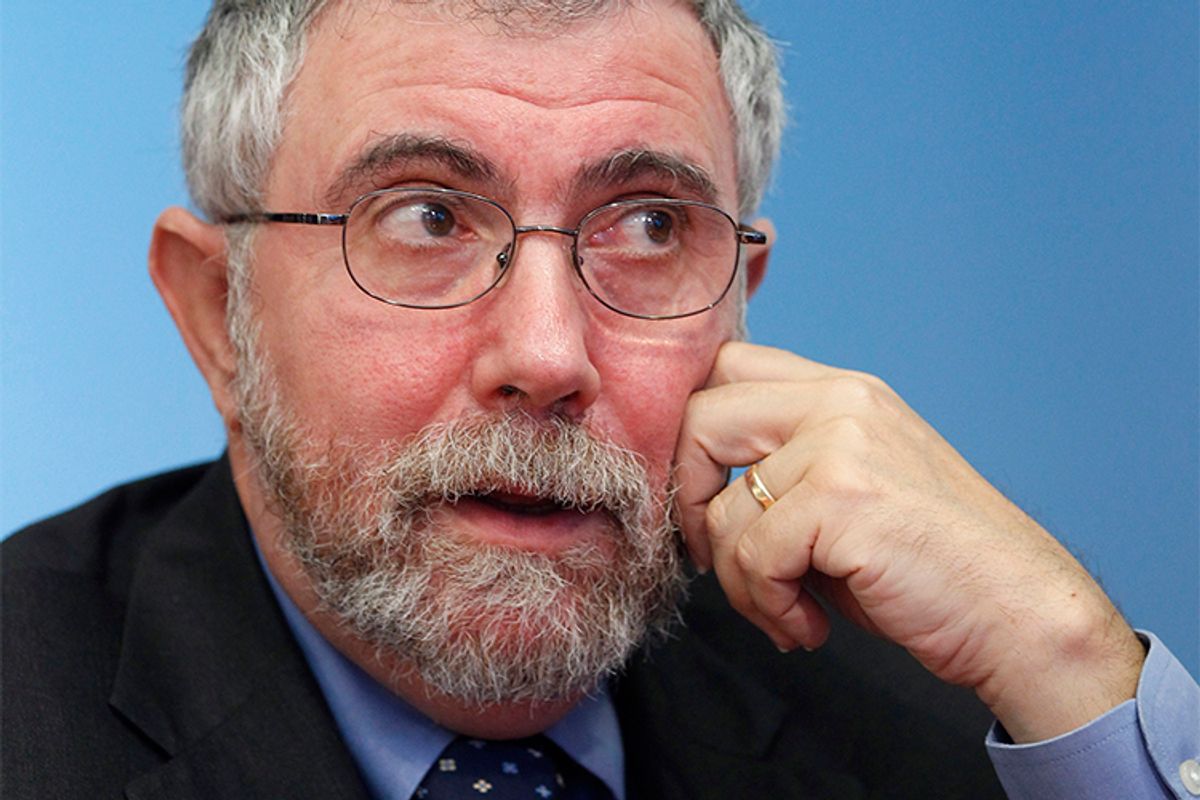In his latest column for the New York Times, award-winning economist and best-selling author Paul Krugman uses a new report from the Intergovernmental Panel on Climate Change to warn that, when it comes to global warming, the world is "still on the road to catastrophe without major policy changes."
But there's good news, too, Krugman writes. While the IPCC report had dire prognostications, it also found that the cost of addressing global warming and reducing carbon emissions may not be nearly as high as was once thought. "Even as the report calls for drastic action to limit emissions of greenhouse gases, it asserts that the economic impact of such drastic action would be surprisingly small," Krugman writes.
"[E]ven under the most ambitious goals the assessment considers," he continues, "the estimated reduction in economic growth would basically amount to a rounding error, around 0.06 percent per year."
Krugman cheers this news, which he credits in large part to technological developments and the rapidly decreasing cost of solar panels. After admitting he once was skeptical about the transformative powers of wind and solar energy, Krugman writes that time has proven him "wrong," and that these alternative energy sources will make a big difference, indeed.
"Thanks to this technological leap forward," Krugman writes, "the climate panel can talk about 'decarbonizing' electricity generation as a realistic goal — and since coal-fired power plants are a very large part of the climate problem, that’s a big part of the solution right there."
It’s even possible that decarbonizing will take place without special encouragement, but we can’t and shouldn’t count on that. The point, instead, is that drastic cuts in greenhouse gas emissions are now within fairly easy reach.
So is the climate threat solved? Well, it should be. The science is solid; the technology is there; the economics look far more favorable than anyone expected. All that stands in the way of saving the planet is a combination of ignorance, prejudice and vested interests. What could go wrong? Oh, wait.



Shares